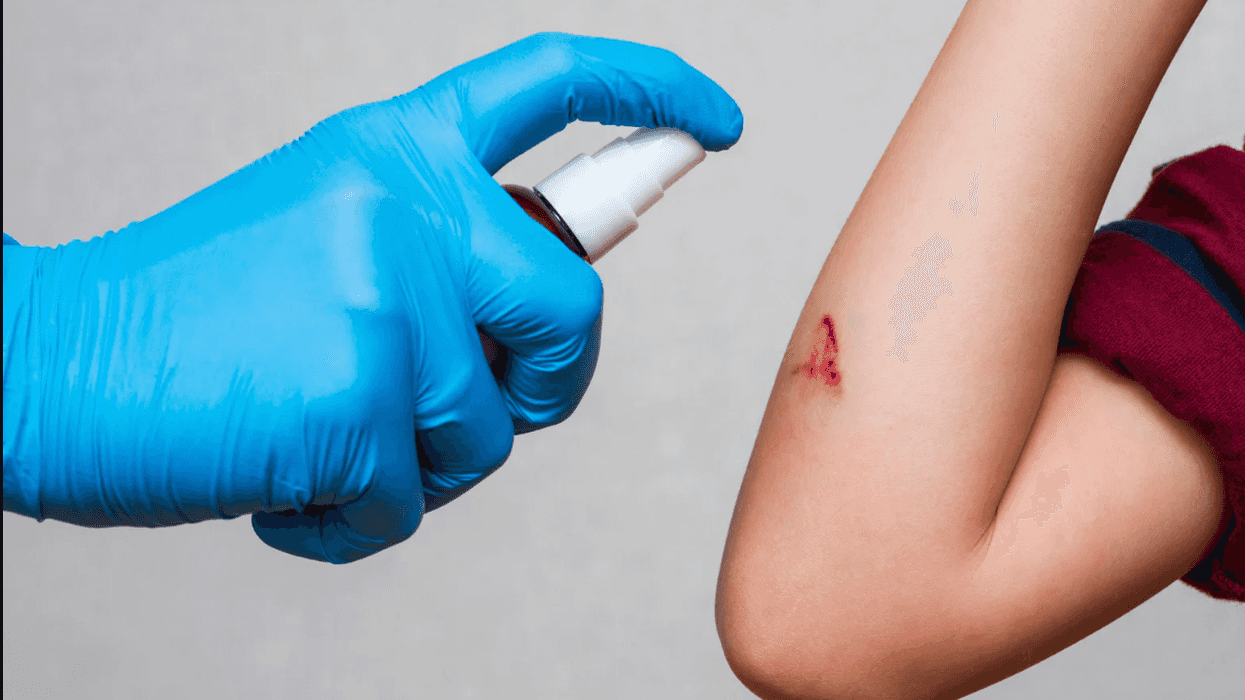The 2016 games in Rio may be behind us, but an Olympic doping scandal lingers in the public imagination. On Wednesday, news broke that several gold-winning Chinese weightlifters failed performance-enhancing drug (PED) retests from the 2008 Beijing games, intensifying our longstanding obsession with “clean” athletes.
It wasn’t even the first such instance this summer. In June, Russian tennis star Maria Sharapova tested positive for meldonium, a drug that increases blood flow so more oxygen can be carried to muscle tissue. The Russian government was accused of sponsoring a state-run doping scheme that gave Russian athletes an unfair advantage at the 2014 Winter Olympics in Sochi. And as punishment for their nation’s prior drug scandals, Russia’s Paralympic athletes have been banned from this year’s games by the International Olympics Committee.
Although some studies have shown that public opinion on allowing athletes to dope is divided (some think it could increase entertainment value), most sporting authorities maintain that athletes should not dope. It’s an emotional topic, one that threatens the relationship between athletes and their fans. People worldwide felt a sense of extreme betrayal and disappointment when the extent of Lance Armstrong’s doping was finally revealed. Studies have shown how even an allegation of use can severely damage an athlete’s reputation. Meanwhile, we spend an extraordinary amount of energy on finding new ways to test for PEDs and studying the effect of doping on public attitudes towards sports.
[quote position="right" is_quote="true"]Drugs like Ritalin and Adderall are prescribed to (or used illegally by) students who want to improve their focus. Yet there’s no drug-testing in place for students.[/quote]
But what’s really behind our obsession with “clean” athletes and “clean” sports? Perhaps it’s more about us—and our relationship with technology—than the athletes themselves.
It’s totally normal for athletes to enhance their performance through technology.
What if sports officials just accepted PEDs as simply another “technology” that enhances the game—an advance no different from equipment upgrades that improve an athlete’s ability, like replacing wooden tennis rackets with graphite.
After all, tennis now allows “hawkeye” technology to determine if a ball is in or out, no longer relying on the fallible eyesight of multiple linesmen and the umpire. FIFA has finally agreed to use goal-line technology to bolster the abilities of referees, who are often put in the position of judging whether a soccer goal has been scored from half a field away.
From a wider societal perspective, we use technology in virtually every aspect of our lives. GPS helps us get from one destination to the next, while we use the internet to order food and arrange dates.
Even non-athletes improve their bodies and minds through gadgets, surgery, and drugs.
Of course, none of these technological advances are entering our bodies. Nor do they (on the surface, at least) have the potential to negatively influence our health.
Researchers believe that high doses of PEDs over sustained periods of time adversely affect athletes' health. However, it’s unethical to conduct controlled studies in case they do harm to the athlete, so we can glean information only through observation. In other words, we think PEDs are harmful, but we don’t know for sure. Legalizing PEDs would allow the proper authorities to make recommendations for safe dosages and prevent health risks. But this is unlikely to happen because of society’s extraordinary investment in “clean” sports.
We now live in a world in which it’s increasingly acceptable to use cosmetic surgery to improve one’s looks and advance a career. See the Kardashians, whose “natural” endowments have been enhanced by modern medicine. This enhancement isn’t illegal, although it’s been shown to have negative and lasting physical and emotional side effects. Drugs like Ritalin and Adderall are prescribed to (or used illegally by) students who want to improve their focus. Yet there’s no drug-testing in place for students.
[quote position="left" is_quote="true"]It’s athletes who bear the burden of displaying essential human characteristics: vulnerability, grit, the courage to … transcend adversity.[/quote]
Sports officials enhance their job performance using technology that makes them efficient and fair. And if beauty or concentration is no longer the result of lucky genes, why does athletic prowess have to be? For anti-PED stalwarts, the answer is quite simple: Athletes have to be human.
Are athletes the last domino in a post-human world?
In a time when technology has become an integral part of the lives of billions of people, it’s athletes who bear the burden of displaying essential human characteristics: vulnerability, grit, the courage to confront challenges and the ability to “dig deep,” reaching beyond one’s physical and mental limits to transcend adversity.
Yes, athletes are superhumans who possess rare physical gifts. But the emphasis is on the human. And perhaps athletes must exhibit distinctively human qualities so that they can help us believe that we are still better than machines.
Ironically, modern technology has helped us overcome many existential threats, whether it’s refrigeration to preserve food or clean water that prevents waterborne disease. But it’s also made us more insecure about our own significance and has caused about one-third of the population to feel some level of technophobia, or “abnormal fear or anxiety about the effects of advanced technology.” The level of dependence on technology is such that researchers have documented phenomena like “smartphone separation anxiety.”
As the news broke about Maria Sharapova’s doping admission, another headline announced a major accomplishment for artificial intelligence: Google’s AlphaGo went head to head against the human champion, Lee Sedol, in the complicated Chinese game of Go—and won resoundingly. The subtext: a machine might be able to beat humans at being human.
These attitudes towards technology are reflected in popular culture. Hit shows like the British-American series Humans convey contemporary anxieties about technology. Featuring “synths”—robots that are almost indistinguishable from humans—the show explores a fear that has been successfully mined by sci-fi writers for decades: When technology replicates our fundamental abilities, what does it mean to be human? Do we simply become the Wizard of Oz’s rusty Tin Man in search of a human heart?
[quote position="right" is_quote="true"]Perhaps we need to believe that, at least when it comes to sports, there’s a level playing field out there somewhere.[/quote]
In art, our core human characteristics—intangibles like altruism, love, empathy—have become symbolic of what it truly means to be human. Spielberg’s AI Artificial Intelligence, Kubrick’s 2001: A Space Odyssey, Pixar’s Wall-E: These films endure because they explore what it means to have a human heart. And, maybe even more than our athletes’ impressive feats, we cherish them because they display heart (along with extraordinary willpower).
If athletes succumb to widespread usage of PEDs, our fundamental conception of ourselves as human becomes tarnished. Republican nominee Donald Trump loves to tell us that “the game” is rigged against us. So perhaps we need to believe that, at least when it comes to sports, there’s a level playing field out there somewhere.
















 Amoxicillin is a commonly prescribed broad-spectrum antibiotic.
Amoxicillin is a commonly prescribed broad-spectrum antibiotic.  Chart: The Conversation, CC-BY-ND
Chart: The Conversation, CC-BY-ND
 An envelope filled with cashCanva
An envelope filled with cashCanva Gif of someone saying "Oh, you
Gif of someone saying "Oh, you
 Two penguins play by the waterCanva
Two penguins play by the waterCanva
 A parking lot for charging electric vehicles.Photo credit
A parking lot for charging electric vehicles.Photo credit  Oil production.Photo credit
Oil production.Photo credit  Sun shines over the Earth.Photo credit
Sun shines over the Earth.Photo credit 
 Counterintuitively, social media can make you feel more bored and lonely.
Counterintuitively, social media can make you feel more bored and lonely. Talking about what you’ve read can add a social dimension to what can be a solitary activity.
Talking about what you’ve read can add a social dimension to what can be a solitary activity. 
 A flight attendant closes the overhead binCanva
A flight attendant closes the overhead binCanva Gif of Larry David trying to put his luggage in overhead compartment via
Gif of Larry David trying to put his luggage in overhead compartment via 
 Dog owner pets their dogCanva
Dog owner pets their dogCanva Gif of a sad looking pug via
Gif of a sad looking pug via 